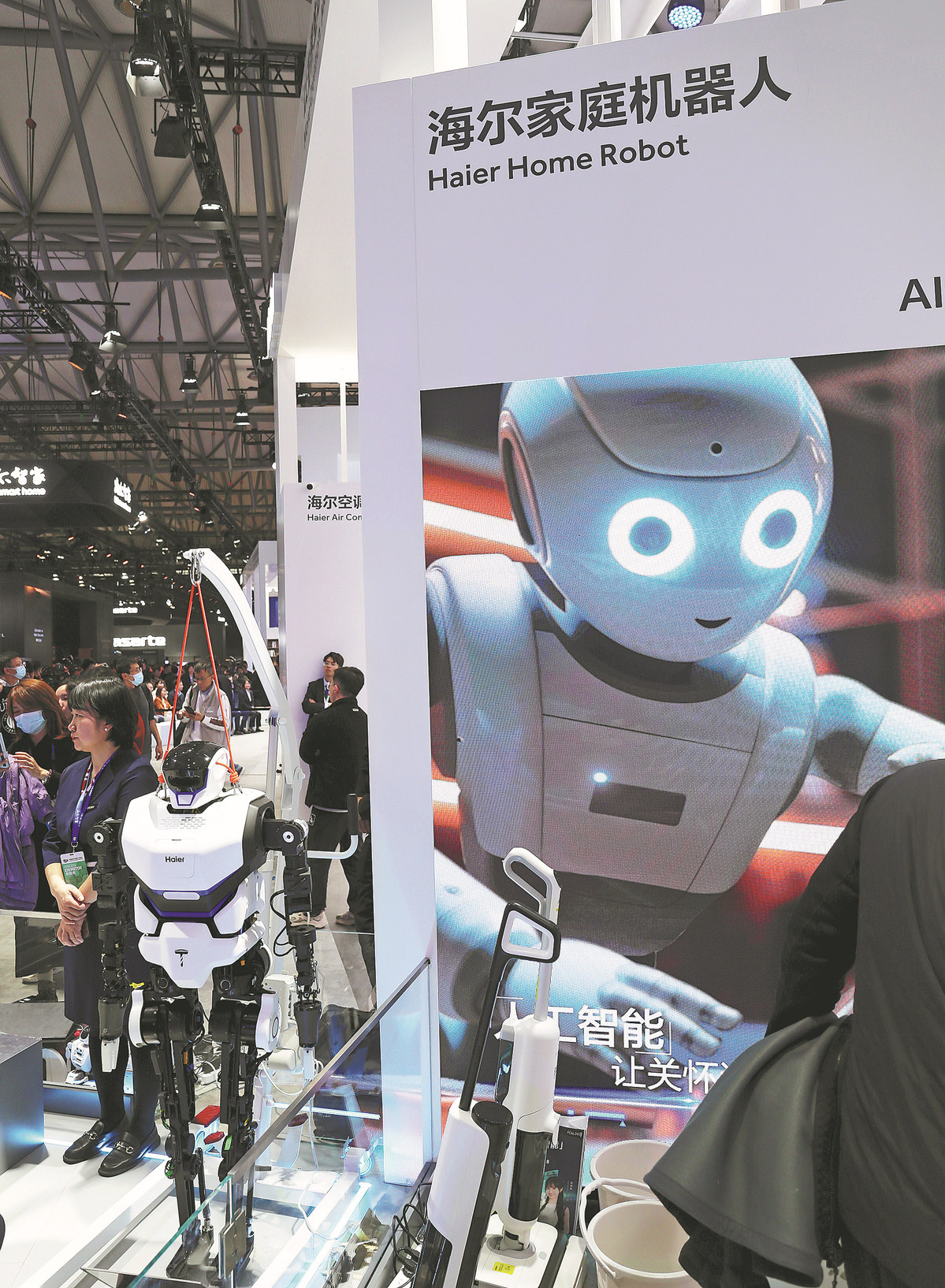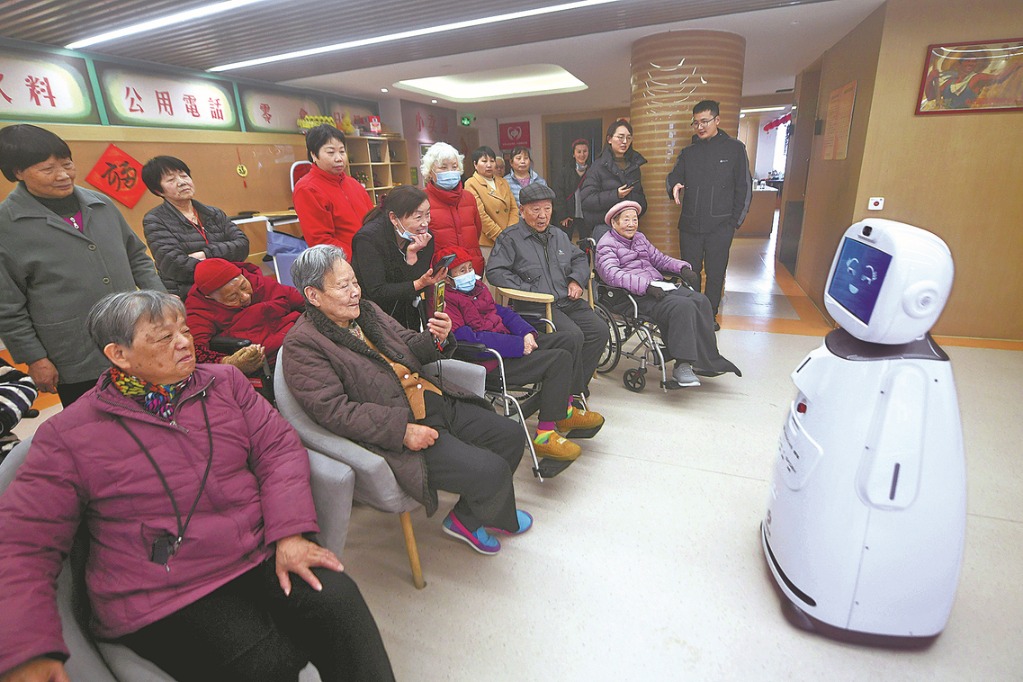Robots play growing role in elderly care
With a rapidly aging population, technology is being used to make up for shortfall in resources


At Shenzhen Nursing Home, robots are now an integral part of daily life, playing chess with seniors, offering AI-assisted moxibustion therapy and providing mobility assistance.
"We place great emphasis on the application of technology in elderly care," said Li Xipo, director of the nursing home. "By integrating AI robots, rehabilitation robots and robotic pets, we aim to improve seniors' quality of life while creating a testing ground for industry innovation."
During this year's Spring Festival, Kenqing Technology, a Shenzhen-based robotics company, sparked online discussion when its exoskeleton robots assisted elderly users in climbing Taishan Mountain, one of the most iconic mountains in China.
"This experience revealed significant unmet needs among seniors," said Yu Yunbo, general manager of Kenqing Technology. "China's silver economy is vast, yet the market lacks high-quality elderly care products."
Across China, robotic solutions are transforming elderly care. In Shenyang, capital of Northeast China's Liaoning province, a 70-year-old stroke survivor surnamed Zhang has regained his ability to walk using an exoskeleton rehabilitation device developed by SIASUN Robot and Automation Co.
"At first, I could barely lift my leg. But now, I can climb stairs again," he said.
In Southwest China's Chengdu, Pacific Care Home has introduced a companion robot named Yang Yang, which wakes residents each morning, provides weather updates and reminds them of their daily activities.
More humanoid elderly care robots like Yang Yang are set to enter the market. The Chengdu Humanoid Robot Innovation Center plans to launch a lightweight humanoid robot in June, designed specifically for family and wellness applications.
It will be able to identify seniors, bring them medicines, chat with them and help them take showers. "Robots can bridge elderly care service gaps while fulfilling seniors' emotional needs," said Chen Yang, deputy general manager of the center.
Industry experts believe the rapid growth of the elderly care robot sector is being driven by policy support and the advancement of AI technology.
China's new guidelines for elderly care service reforms call for advancing humanoid robots, brain-computer interfaces and AI technologies to enhance senior care.
"Robots are no longer just executors, they are evolving into AI-powered family members," said Zhang Yunquan, a researcher at the Institute of Computing Technology of the Chinese Academy of Sciences.
"Future robots will be able to detect emotional fluctuations, predict health risks and provide proactive care just like an AI companion at home," Zhang said.
"Elderly care robots will ease home-based care challenges and unlock the potential of the silver economy. Moving forward, we must focus on technological breakthroughs, scenario adaptation and ecosystem development to propel the industry's growth."























